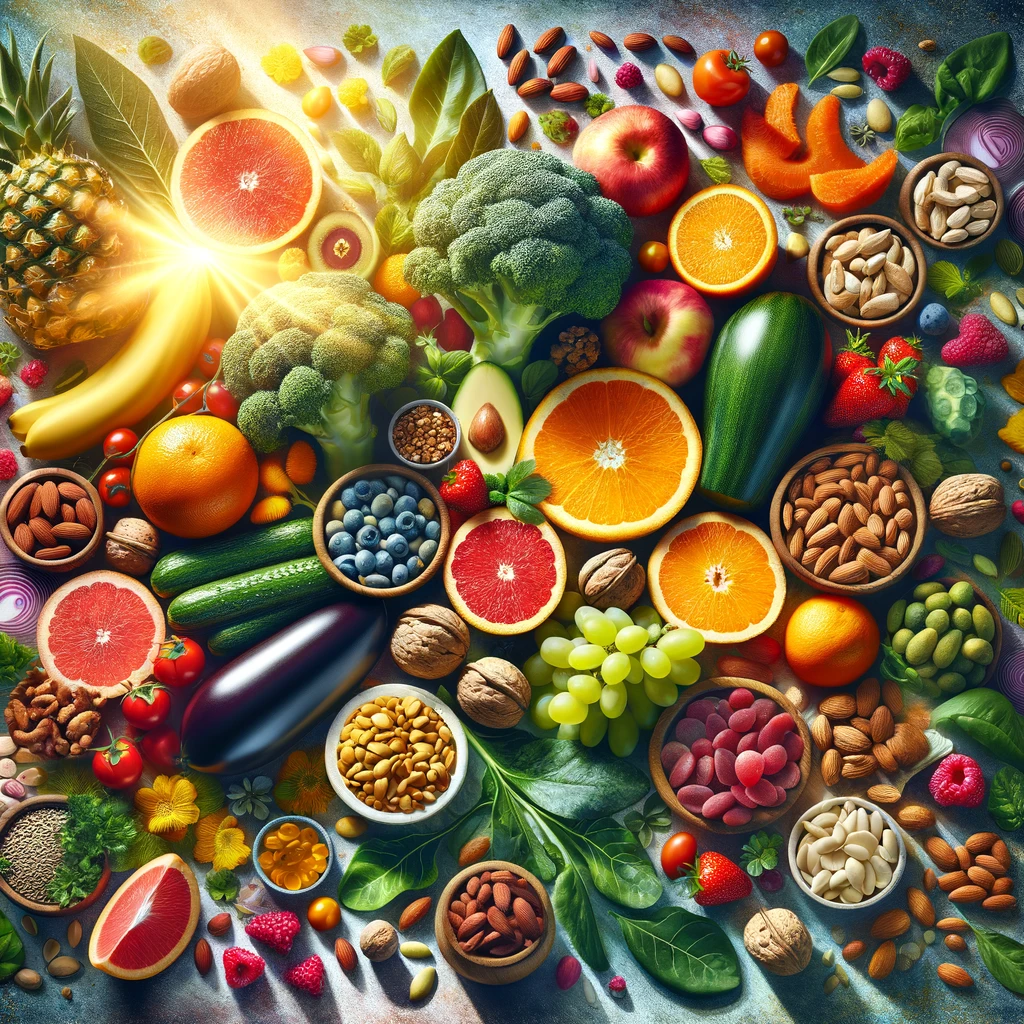PLANT powered Athletes

Switching to a vegan diet can be a transformative journey towards better health and a more compassionate lifestyle. While plant-based eating offers numerous benefits for individuals and the planet, it’s crucial to ensure you meet all your nutritional needs. Here are five essential nutrients that vegans should prioritize, along with their recommended daily allowances (RDAs) and specific plant-based sources to include in your diet:
Vitamin B12 is often called the “energy vitamin” because it maintains energy levels and supports neurological function. Despite being vital for overall health, B12 is primarily found in animal products, making it a common concern for vegans.
RDA: The recommended daily allowance for adults is 2.4 micrograms.
Vitamin D, often called the “sunshine vitamin,” is crucial in bone health, immune function, and mood regulation. However, many individuals, including vegans, may struggle to get enough vitamin D, especially in regions with limited sunlight.
Sources: Sunlight exposure is the primary source of vitamin D, but fortified foods such as plant-based milk, orange juice, and breakfast cereals can contribute to intake. Certain mushrooms, such as shiitake, are also natural sources of vitamin D.
Vitamin K2 is essential for bone, heart, and blood clotting health. While plants contain vitamin K1, which the body can convert into K2, specific plant-based sources may not provide enough for optimal health.
RDA: Experts recommend about 100 micrograms per day.
Sources: Leafy green vegetables like spinach, kale, and broccoli are rich in vitamin K1, while fermented foods like natto are excellent sources of vitamin K2. Including various foods in your diet can help ensure adequate intake.
EPA and DHA are omega-3 fatty acids critical for brain health, heart health, and reducing inflammation. While some plant foods contain ALA, a precursor to EPA and DHA, not everyone efficiently converts ALA into these essential fatty acids.
RDA: Most health organizations agree that 250-500 milligrams of combined EPA and DHA per day is ideal.
Sources: ALA-rich foods include flax seeds, chia seeds, hemp seeds, walnuts, and leafy green vegetables. To ensure sufficient EPA and DHA intake, consider incorporating algae-based supplements into your diet.
Iodine is crucial for thyroid function and overall metabolism. Vegans, vegetarians, and pescatarians are at risk of iodine deficiency if not supplementing adequately.
RDA: The recommended daily allowance for adults is about 150 micrograms.
Sources: Sea vegetables like nori, kelp, and dulse are excellent sources of iodine. Additionally, incorporating iodized salt into your meals or consuming iodine-rich fruits and vegetables like strawberries, spinach, and potatoes can help meet your needs.
Conclusion
Embracing a vegan lifestyle is a powerful choice for your health, the environment, and animal welfare. By prioritizing these essential nutrients and incorporating a diverse array of plant-based foods into your diet, you can thrive on a vegan diet while nourishing your body and soul. Remember, every meal is an opportunity to nourish yourself and make a positive impact on the world.
So, let’s celebrate the abundance of delicious, nutrient-rich plant foods available to us and embark on this journey towards optimal health and vitality—because when we nourish our bodies with compassion and intention, we nourish our spirits and the world around us.